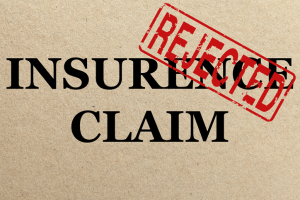Next to heart disease and cancer, medical errors are said to be the third major cause of death in the United States, an article published in CNBC.com stated in 2018. The article quoted an eight-year study conducted by Johns Hopkins, which also found out that an average of 250,000 patients die annually due to medical error.
In general terms, medical negligence covers situations where a healthcare practitioner fails to provide the appropriate medical treatment, falls short in performing the correct medical action, or administers inadequate medical treatment, leading to trauma, injuries, or, worse, death.
Contrary to popular notion, it takes more than a surgical mistake to take a medical professional to court. So, how does the law determine medical malpractice and what does a patient have to do in order to file a complaint? Find out below.
1. What Can Be Considered As Medical Negligence?
Not all forms of injuries or damages incurred from a medical treatment will qualify as medical malpractice. As such, establishing medical negligence is a daunting task, especially if you don’t have a medical malpractice attorney by your side. That being said, always talk to a lawyer before deciding whether or not to pursue the case.
The following components must be proven before the court:
- A duty of care was owed. A patient-doctor relationship must be established. All healthcare workers are bound to take care of their patients in the best of their abilities.
- An action or failure to act breached the duty of care. Failure to act, dispensing improper care, and an omission all constitute negligence, which is considered a violation of the duty of care. The complainant must be able to prove that medical malpractice was present.
- The patient suffered harm or injury. The petitioner should prove that the injury or damages resulted from the negligent behaviour of the healthcare provider.
Contrary to popular notion, it takes more than a surgical mistake to take a medical professional to court.
To prove beyond reasonable doubt that a patient suffered an illness or injury as a direct consequence of medical malpractice, testimonies from experts are critical, and so are comparisons to the type of care and attention provided to patients who suffered from the same illness. These vital steps make medical negligence cases time-consuming and complex.
Hence, there’s no one-size-fits-all approach when it comes to assessing medical errors. If you need help in determining whether your case qualifies, consult legal professionals who can provide you with a sound advice on the best course of action.
2. Common Examples That May Qualify For Medical Negligence
Lawsuits pertaining to medical negligence need to be assessed individually by a lawyer. However, these specific situations faced by patients may constitute malpractice on the part of medical practitioners:
- Failure to diagnose a medical condition
- Misdiagnosis
- Unnecessary surgical operation
- Inappropriate surgical operation
- Leaving an object inside of the patient’s body during or after surgery
- Operating on the wrong section of the body
- Persistent pain suffered by a patient following a surgery
- Early discharge of a patient
- Failing to request appropriate medical tests
- Inaction over medical test results
- Failure to follow-up
- Prescribing the wrong medication
- Prescribing the wrong dosage
- Potentially fatal infections acquired in the hospital
- Formation of bedsores on a patient
Lawsuits pertaining to medical negligence need to be assessed individually by a lawyer.
3. What To Do If You Think You’re A Victim Of Medical Negligence?
As an expert, an attorney can assess the merits of your case and provide you with advice on how to proceed.
Expect the lawyer to review your case by asking for copies of pertinent documents, such as medical records, prescriptions, and doctor’s notes, among other documentary evidence. The legal professional will likewise conduct thorough interviews with the patient, family members, and whoever may be privy to the case. The attorney may also attempt to discover the potential causes of medical malpractice in your specific case.
Take note that seasoned attorneys will not push through with the case unless they believe that all the documentary evidence and testimonial interviews are deemed significant and actionable by a medical specialist.
4. Insurance Firms Prefer To Settle
Proving medical malpractice is time-hungry, stressful, and costs a lot of money. That being said, an honest apology from medical workers and the administration itself may help prevent future lawsuits.
Insurance companies likewise prefer to settle with the aggrieved party rather than go through expensive and usually long-term litigation. Insurance firms opt for pre-court settlements because this can help prevent them from paying hefty fines once a lawyer is involved.
[ymal]
Final Thoughts
Most people shy away from asking important questions about their health, prognosis, as well as planned treatment. But, with various medical information resources accessible these days, a more proactive approach is needed. Patients can speak up and ask questions about their health, armed with some knowledge on their particular medical condition.
This does not mean that patients should challenge every prognosis and declarations issued by physicians. Being proactive means speaking up if you think there’s something wrong and listening to what your body tells you. After all, you only have one life to live.





















